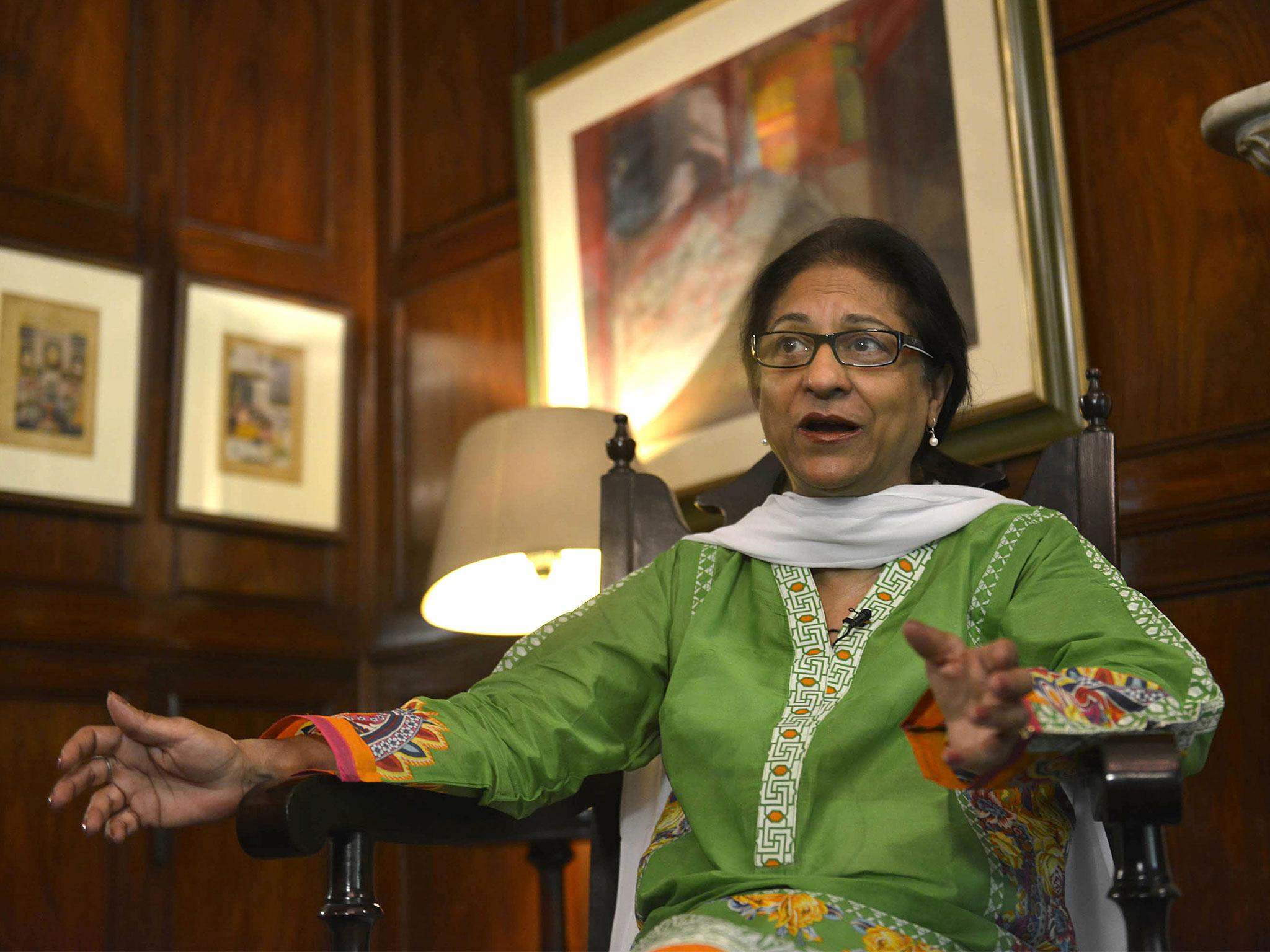Asma Jahangir: Pakistani human rights campaigner and lawyer, dies aged 66
Malala Yousafzai leads tributes to activist who faced prison and assassination plots in fight for democracy and free speech

Your support helps us to tell the story
From reproductive rights to climate change to Big Tech, The Independent is on the ground when the story is developing. Whether it's investigating the financials of Elon Musk's pro-Trump PAC or producing our latest documentary, 'The A Word', which shines a light on the American women fighting for reproductive rights, we know how important it is to parse out the facts from the messaging.
At such a critical moment in US history, we need reporters on the ground. Your donation allows us to keep sending journalists to speak to both sides of the story.
The Independent is trusted by Americans across the entire political spectrum. And unlike many other quality news outlets, we choose not to lock Americans out of our reporting and analysis with paywalls. We believe quality journalism should be available to everyone, paid for by those who can afford it.
Your support makes all the difference.Pakistani human rights campaigner Asma Jahangir, who risked her life fighting for democracy and free speech, has died aged 66.
Ms Jahangir's daughter Munizae said her mother had died in Lahore on Sunday after suffering a heart attack.
The campaigner dedicated her life to defending the rights of women, children and religious minorities in her home country.
Pakistani Prime Minister Shahid Khaqan Abbasi lauded her "immense contributions towards upholding rule of law, democracy and safeguarding human rights".
Activist Malala Yousafzai paid tribute to her on Twitter.
“Heartbroken that we lost Asma Jahangir - a saviour of democracy and human rights,” she wrote.
“I met her a week ago in Oxford. I cannot believe she is no more among us. The best tribute to her is to continue her fight for human rights and democracy.”
Ms Jahangir was a staunch critic of Pakistan’s strict blasphemy laws, introduced during General Muhammad Zia-ul-Haq's Islamisation programme during the 1980s.
Her campaign to restore democracy in the country led to her being imprisoned in 1983 and she was later put under house arrest in 2007 for opposing Pakistan’s then-president Pervez Musharraf.
In 2012, US intelligence agencies discovered evidence Pakistani officials had devised a plot to assassinate Ms Jahangir in an attempt to "quiet public criticism of the military".
She had served as a UN special rapporteur for freedom of religion from 2004 to 2010 and before her death had been working for the organisation in a similar role overseeing human rights in Iran.
A lawyer by background, she was also a founding member of the Human Rights Commission of Pakistan and former president of the Supreme Court Bar Association.
She represented several civil society organisations that were threatened with shutdown, as well as families of several missing activists in recent years.
Additional reporting by Reuters
Join our commenting forum
Join thought-provoking conversations, follow other Independent readers and see their replies
0Comments